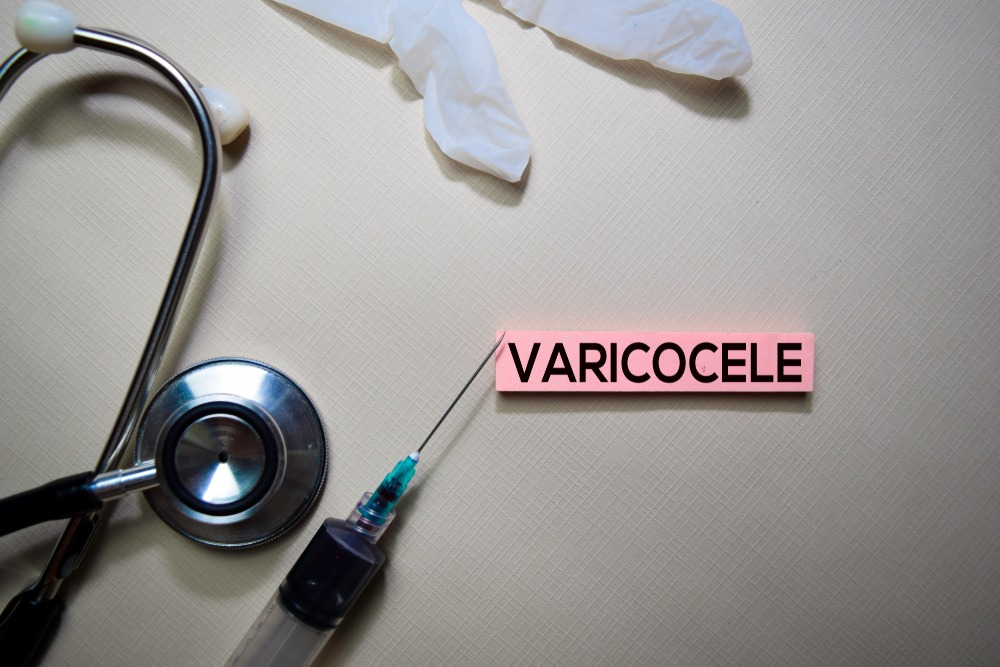General Surgeries / Varicocele
Varicocele Embolization Repair for Infertility: A Comprehensive Look

by admin
14th September 2023
6 minutes read
Infertility among men is a matter of concern for many couples worldwide. One prevalent condition leading to male infertility is a varicocele. But, what exactly is it, and how is it treated? This blog post aims to explore the symptoms of a varicocele, its link to infertility, and the advanced varicocele embolization procedure that serves as a revolutionary treatment.
What is Varicocele?
A varicocele is a dilation of the veins within the scrotum, resembling varicose veins that some people have in their legs. The dilation occurs when the valves within the veins do not work properly. This results in an accumulation of blood, causing the veins to enlarge.
Symptoms of a Varicocele
Not every man with a varicocele will display symptoms. However, those who do might experience:
- A noticeable enlargement of the veins in the scrotum.
- A dull discomfort or pain in the testicle(s).
- A feeling of heaviness in the scrotum.
- Testicular atrophy, where the testicle becomes smaller.
- Decreased sperm quality, leading to infertility.
- The Link Between Varicocele and Infertility
While the exact reason remains unclear, it’s well-accepted in the medical community that there’s a link between varicocele and infertility in men. The condition might lead to a decreased sperm count, poor sperm movement, and an increase in blood temperature around the testicle, potentially damaging sperm.

Varicocele Causes and Risk Factors
The root causes of a varicocele are not completely understood. However, the defect in the valves of the varicocele veins is believed to be congenital (present from birth). It typically manifests in adolescence and can be exacerbated by any situation that puts pressure on the abdomen, such as heavy lifting or straining.
Varicocele Treatment: The Conventional Route
Conventionally, varicocele repair or varicocele surgery has been the go-to solution. This involves sealing off the affected vein to redirect blood flow to healthier veins. Varicocele surgery has a good success rate, but like all invasive procedures, there are potential complications.
The Rise of Varicocele Embolization
Varicocele embolization is a less invasive procedure that has gained traction recently. Unlike traditional surgery, varicocele embolization surgery doesn’t involve any cuts. A radiologist inserts a catheter into the groin or neck through which embolic agents are delivered to block the affected varicocele veins.
Why Consider Varicocele Embolization Repair?
Varicocele embolization repair is becoming a preferred treatment choice for many men diagnosed with varicoceles. Here’s why it should be considered:
- Minimally Invasive:
Unlike traditional surgical treatments, varicocele embolization is minimally invasive. The procedure requires only a small nick in the skin, eliminating the need for incisions, sutures, and the related risks.
- Safety:
Varicocele embolization boasts a high safety profile. As it’s often performed under local anesthesia, the risks associated with general anesthesia are circumvented. Additionally, complications like infections or wound-related issues, more common with surgeries, are significantly reduced.
- Shorter Recovery Time:
The recovery period after embolization is relatively short. Most patients can return to their regular activities within a day or two, whereas surgical treatments often demand a longer convalescence.
- Efficacy:
Numerous studies have shown that varicocele embolization is as effective, if not more so, than surgical options. It effectively alleviates pain, reduces the size of the varicocele, and can improve fertility parameters in men.
- No Scarring:
As the procedure doesn’t require any significant incisions, there’s minimal to no scarring post-treatment, leading to better cosmetic outcomes.
- Reduced Pain:
Many patients report less pain following varicocele embolization compared to surgical approaches. The less invasive nature of the procedure contributes to this reduced discomfort.
- Outpatient Procedure:
Varicocele embolization is typically performed on an outpatient basis. This means patients don’t have to stay overnight in a hospital, leading to cost savings and less disruption to one’s routine.
- Better Long-term Outcomes:
While recurrence of varicoceles is possible with any treatment, some studies suggest that the recurrence rate might be lower with embolization than with surgery.
- Options for Bilateral Varicoceles:
If a patient has varicoceles in both testicles, both can often be treated in a single session of embolization, whereas surgical approaches might require separate procedures.
- Cost-effective
Given the reduced hospital stay, fewer complications, and less need for follow-up care, varicocele embolization can also be a more cost-effective option for many patients.
Varicocele Pain and Post-Procedure Recovery
Post-procedure, patients might feel a mild ache or pain, but this is generally more manageable than the postoperative pain of traditional varicocele surgery. It is essential for the varicocele patient to follow the urologist’s advice diligently during the recovery period.
In Conclusion
Infertility in men is a pressing issue, and varicoceles remain a significant contributing factor. However, advances like varicocele embolization offer a beacon of hope. While traditional varicocele surgery remains an effective option, the minimal invasiveness and quicker recovery associated with embolization make it an attractive alternative.
If you or someone you know is struggling with a painful testicular varicocele or concerns related to infertility, it’s essential to consult with a specialized varicocele urologist. With the right information and medical advice, you can make an informed decision about the best course of treatment.
How Can Medfin Help?
Medfin is a daycare surgery expert providing access to the latest surgical procedures and top doctors in your city at affordable prices. Medfin provides you access to top doctors and surgeons with 10+ years of experience . With Medfin, you can leave your hassles behind and focus on your health. From instant consultations to paperwork assistance, we have got you covered with everything. So why wait? Call us today!
FAQs
Most men can return to their normal activities within 2-3 days after varicocele embolization, while strenuous activities should be avoided for about a week.
Some men might experience mild pain or discomfort, which can usually be managed with over-the-counter pain medications.
Patients are usually advised to avoid heavy lifting or strenuous exercise for about a week following the procedure. Sexual activity can usually be resumed after a few days to a week, but it’s essential to consult with the physician for individual recommendations.
While some couples may start trying immediately after recovery, it’s recommended to wait for a semen analysis after 3-4 months to evaluate the impact of the procedure on sperm quality.
The majority of men do not experience long-term complications. However, in rare cases, varicoceles might recur, or there might be persistent pain that may require further intervention.
CATEGORIES
- ACL Reconstruction
- Anal Fissures
- Anal Fistula
- Appendicitis
- ASK A DOCTOR
- Benign Prostatic Hyperplasia
- Breast Lump Excision
- Cataract
- Circumcision
- Conditions & Diseases
- Cosmetology
- Covid-19
- Cure
- Endocrinology
- ENGLISH VIDEOS
- Eye Care
- Gallstones
- General Surgeries
- Government Schemes
- Gynaecology
- Gynecomastia
- Gynecomastia
- Health
- Health Insurance
- Hernia
- hindi
- Hip Arthoscopy
- Hip Replacement
- Hip Replacement Surgery
- Hydrocele
- Kannada
- Kidney Stones
- Knee Arthroscopic
- Laparoscopic
- LASER
- Latest Treatments
- Lifestyle
- Liposuction
- Medfin Stories
- Medicine
- Nephrology
- Ophthalmology
- Orthopaedic
- Paraphimosis
- Patient Testimonials
- PCL Reconstruction
- Phimosis
- Piles (Hemorrhoids)
- Pilonidal Sinus
- Proctology
- Prostate Artery Embolization
- Rhinoplasty
- Second Opinion
- Total Knee Replacement
- Uncategorised
- Urology
- uterine artery embolization
- Uterine Fibroids
- Varicocele
- Varicose Veins
- Vascular
- VIDEOS






